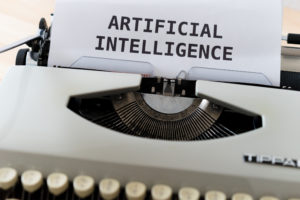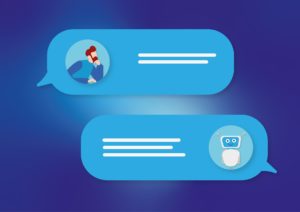Marketing is constantly changing and evolving as consumer needs and designs shift. To stay competitive and survive in this growing industry, it’s important to adapt to growing technology trends and tools. The latest technology revolutionizing the marketing industry is Artificial Intelligence (AI). The power of AI can fundamentally change the way we approach marketing in the future.
What is AI in Marketing?
AI is a growing digital technology that analyzes data and makes automated decisions based on its advanced data analysis. This technology is essential to marketing professionals. When marketers learn more about their target customers, they can use all this in-depth knowledge to develop authentic and personalized strategies to reach them at the right place and the right time.
How AI is Shaping the Future of Marketing
As AI technology continues to increasingly grow and the digital world expands, the world of content marketing is changing rapidly. Consider all the tasks that are performed prior to content going live- data review, keyword research, SEO, and content writing. Tasks like these can add up quickly and leave marketers spending valuable writing hours dedicated to researching, testing, and optimizing.
AI is more than just chat bots. It will not replace marketers, but empower them to achieve greater efficiency, creativity, and effectiveness.
Here are some ways AI is contributing to the future of marketing:
- Content Strategy
 Utilizing AI technology in content strategy is an essential consideration for remaining competitive in the evolving digital market. Consistently researching and generating insightful and engaging content can be challenging and time consuming. AI can assist marketers with creating relevant content to target audience throughout each stage of the marketing funnel. Many companies use competitive analysis to build their content strategy. Using AI allows marketers to collect and process vast amounts of data to build a data-driven strategy for engagement and traffic.
Utilizing AI technology in content strategy is an essential consideration for remaining competitive in the evolving digital market. Consistently researching and generating insightful and engaging content can be challenging and time consuming. AI can assist marketers with creating relevant content to target audience throughout each stage of the marketing funnel. Many companies use competitive analysis to build their content strategy. Using AI allows marketers to collect and process vast amounts of data to build a data-driven strategy for engagement and traffic.
- Lead Generation
Lead generation is complex, but crucial for B2B marketers. AI-powered tools provide valuable insights and identify potential leads across multiple channels more effectively than ever before. Lead generation is being transformed by predictive analytics using AI. By analyzing data from existing customers and industry reports, predictive analytics can be used to identify patterns and trends in new markets.
Companies are also gaining lead generation through the use of chatbots. With the ability to simulate conversation with users, chatbots can be used to qualify leads, provide information, as well as nurture leads over time. By fully realizing the benefits of AI-powered lead generation, companies can stay ahead of the curve.
- SEO
Marketers are increasingly using AI to quickly understand what makes a specific piece of content or site rank on search engines. More often than not, a new way to use AI tools to help propel SEO strategies forward is being proposed.
rank on search engines. More often than not, a new way to use AI tools to help propel SEO strategies forward is being proposed.
One of these AI generative tools is ChatGPT, an AI-powered chatbot developed by OpenAI. While ChatGPT will not be replacing human writers anytime soon, it has the potential to shift the search engine landscape. Marketers can take this tool and put it to incredible use to generate keywords or assist with building out relevant content by outlining your key points.
The growth of technology has led to voice searches being more commonly used in search queries. AI-powered speech recognition technology allows search engines to understand natural language queries and recommend long tail keywords to reflect how customers speak.
- Email Marketing
The powerful capabilities of AI can assist with multiple email marketing-related tasks at scale, including contact segmentation, writing copy, and deliverability optimization.
Proper contact list management is key to effective personalization in email marketing. AI-powered tools can do what humans cannot and comb through the large amounts of data to create segmented lists based on engagement levels, demographics, and purchase history.
The consistency of tone and content of emails are crucial. AI can assist with suggesting which content to include in an email based on the recipient’s interests and past behavior.
Analytics are valuable in email marketing as marketers can learn which strategies to invest in and which to discard. The time it takes to ensure better optimization send times and deliverability rate are reduced drastically with AI and can ultimately improve the success rate of email campaigns.
The digital world is continuing to grow, and AI is becoming a dynamic game changer for digital marketing. This technology is not here to replace human marketers, but instead optimize and streamline current marketing tactics.
